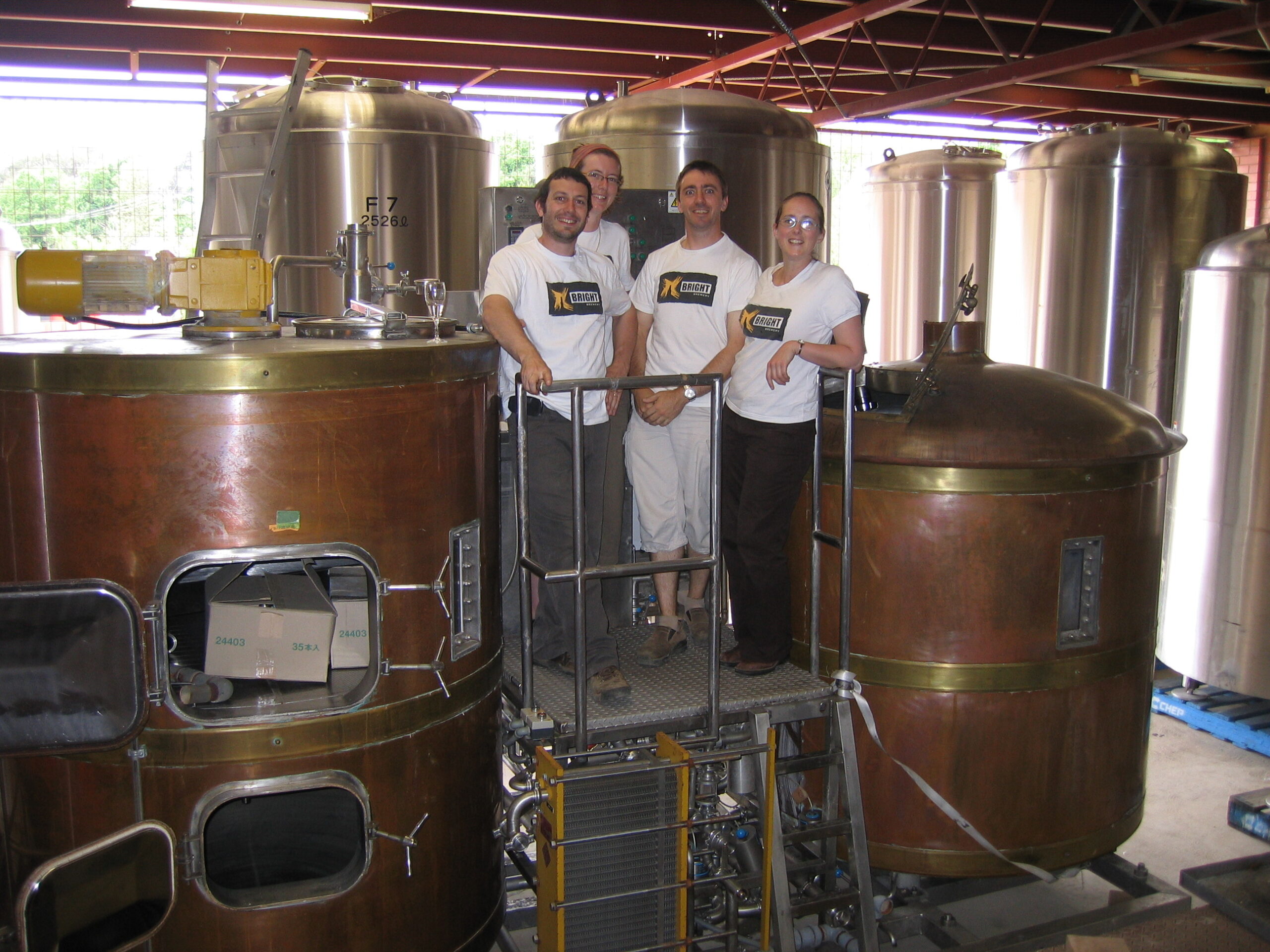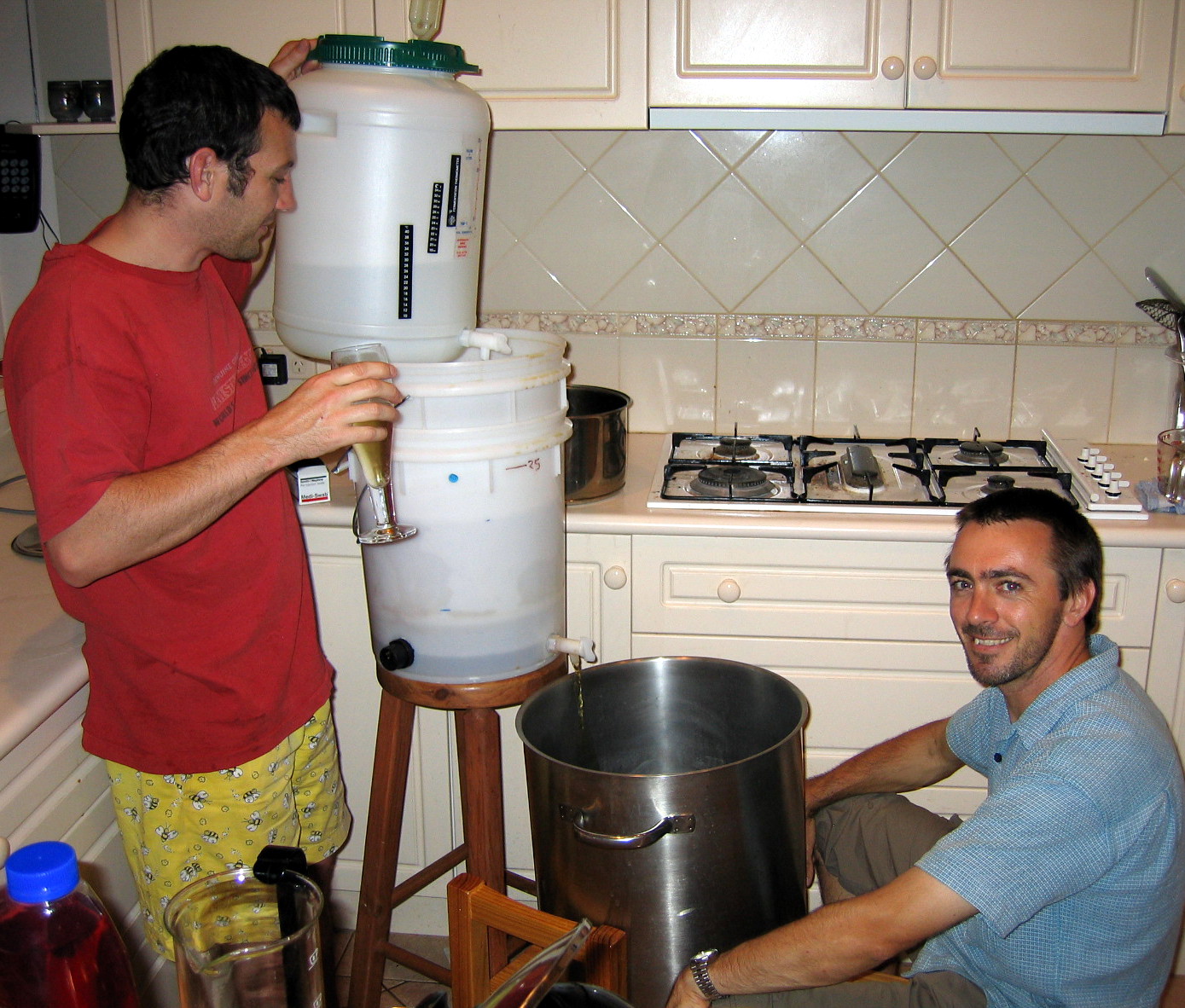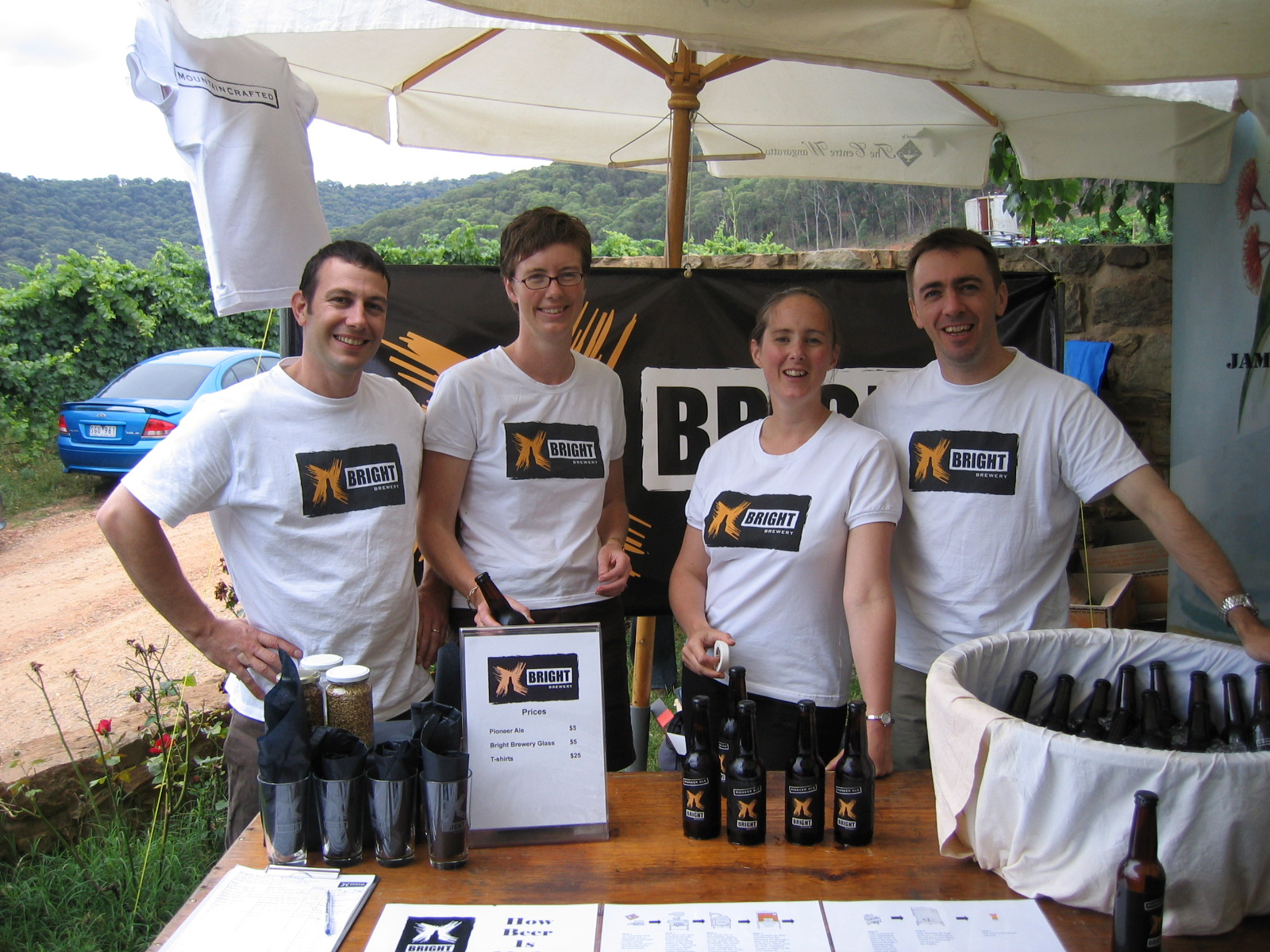
Bright Brewery still resilient after 15 years
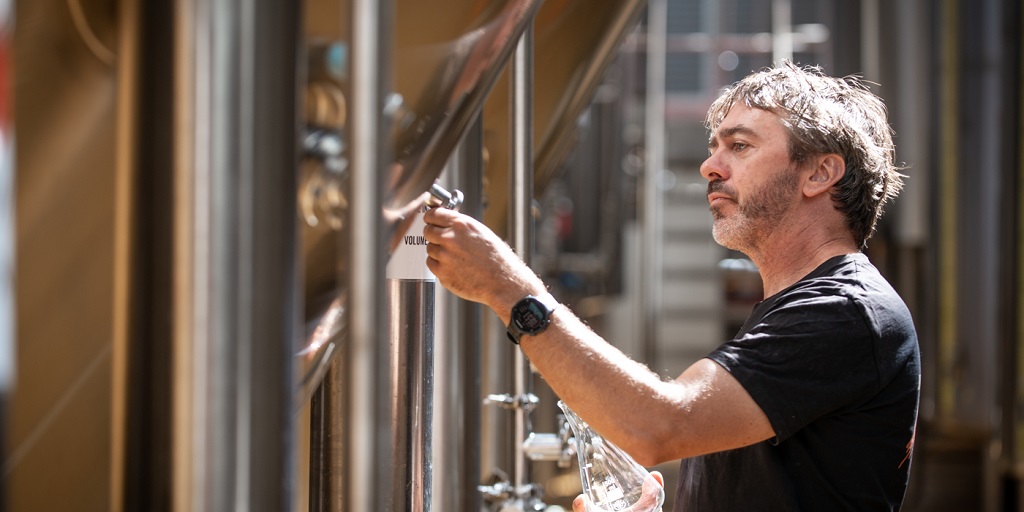
Bright Brewery’s 15th birthday celebrations were cancelled this week due to lockdowns across Victoria, but to a company that has faced bushfires, pandemics and growing competition, the inconvenience seems slight.
The idea for Bright was conceived by Scott Brandon, his wife Fiona Reddaway, and friends David Cocks and Julia Street, brewing its first beer in 2005, and opening its site in the High Country town of Bright in 2006.
15 years on, Bright has battled some seismic changes and devastating events.
“We moved out of Melbourne to come up here, and we started the brewery three years later,” recalled co-founder Scott Brandon.
“The first five years were really challenging. It’s not cheap to set up a brewery and we wanted to fund it all ourselves and have full control, we didn’t want to lease off someone, for example, and be at the mercy of a landlord.
“We started in a partnership with friends and we had differences about objectives and that was challenging, but once we resolved that and started to get the restaurant going, it was all positive.
“It’s always been a steep learning curve,” he admitted. “I look back and think ‘we were so green’!”
In the beginning
Bright was one of a new wave of ‘craft’ breweries, including Mountain Goat, Bridge Road and Tasmania’s Moo Brew.
“There were a few around but nowhere near the numbers we have now,” Brandon said.
“99 per cent of the people who walked in our front door had never had a craft beer before. We tried to educate customers for the first five years about what we did, that there were different options for beer drinkers than what they were used to. We had our work cut out for us.
“Now it’s the opposite. Even from a beer style perspective, most people understand what an IPA is or a stout, back then there was little awareness of beer styles.”
Bright has also developed with the times when it comes to its business model.
“We’ve gone through a number of growth phases over the last 15 years.
“We started in a small shed after we secured a block of land in town for a beer garden with the shed to squeeze the brewing equipment into. That’s all we could afford.”
After Fiona and Scott bought out their partners and took over the business in 2009, they realised that an expansion was needed to keep up with demand, and in 2013 grew the venue from 162sqm to 752sqm.
“When we opened, it was firstly how do we brew beer on a commercial scale? Then it was let’s open the restaurant and figure out how to run a restaurant.”
Sadly, Fiona passed away in 2014 from stomach cancer, but in her honour, the team dubbed their new production facility project ‘Fred’s Shed’.
The land for the expansion was acquired in 2016 and Bright commissioned the production facility in 2018, with the new brewery tripling its capacity.
“That allowed us to say ‘where do we go next?’
“We have a beer club, but more and more people were asking for our beers and we felt there was opportunity to diversify business a little bit more,” Brandon explained.
“We were very reliant on the fickleness of tourism and having people come to the brewery door, and we’re at the mercy of bushfires which are a regular occurrence.
“We can’t pretend these things won’t happen again, but what can we do to mitigate that risk?”
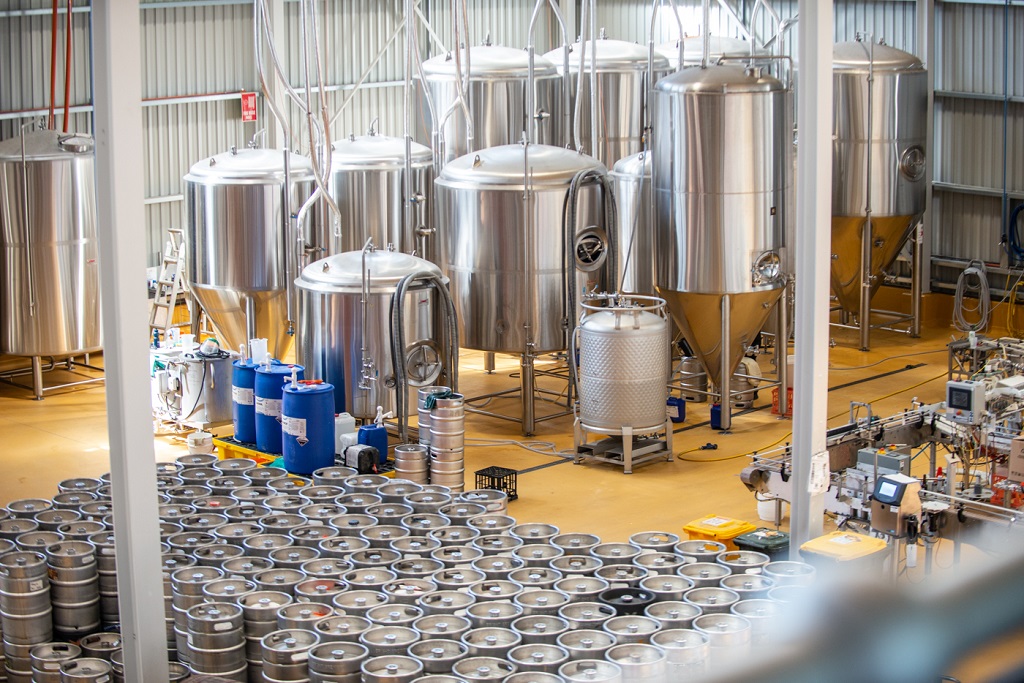
COVID
Dubbed its “toughest year on record”, 2020 proved to be a huge year for the brewery, which accelerated distribution plans and invested in making the brewery futureproof.
Laura Gray, marketing manager at Bright for the past three years, said that they had planned for 2020 to be a big year, but COVID had other ideas.
“That was a huge challenge but also really interesting at the same time,” she said.
“We got to do a lot of different things we don’t normally do; home delivery of our beers, our sales rep in Melbourne set up a pop-up bar in a refrigerated warehouse, and we spent a couple of months pouring growlers and hand-delivering them.
“After operating a business one way for 15 years, then having to transition the whole business model, seeing the resilience of the business was a bright spot. It was certainly an interesting period.”
95 per cent of Bright beer prior to the pandemic was sold in Victoria.
“Then during lockdown, we had to find other avenues to sell the beer and pulled together national distribution. We’re in every state and territory now except the Northern Territory.
“So that forced us into action and it’s paying dividends now having those additional sales outlets,” Gray said.
“We always had an online shop and did gift vouchers but that was it, and now it’s a pretty substantial part of the business.
“So to already have those things in place to fall back on has been great.”
The future is Bright
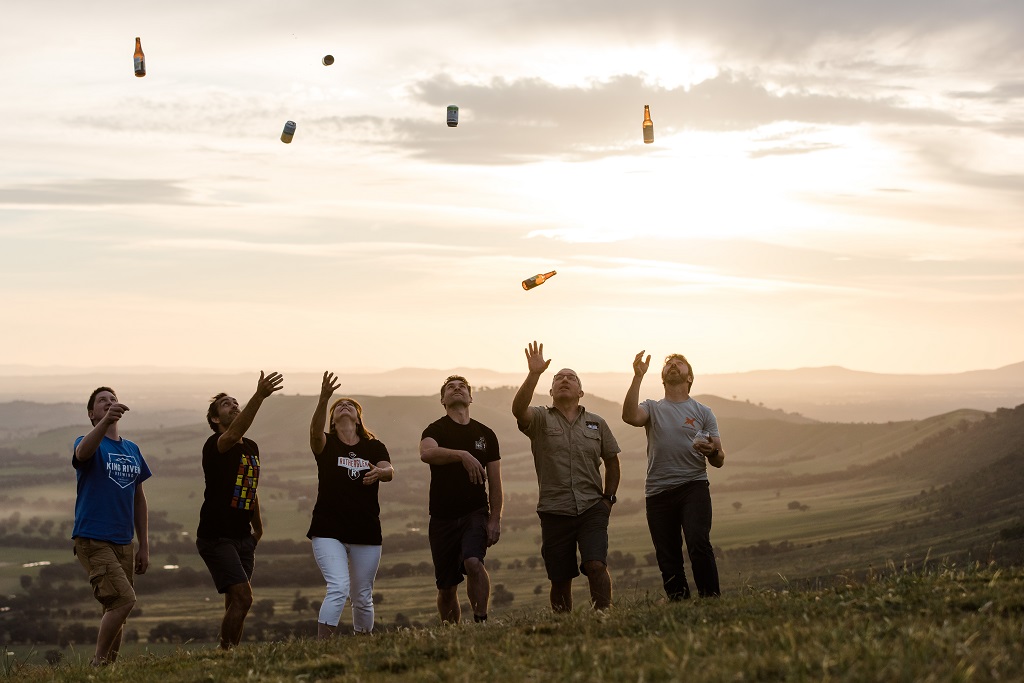
Having already scaled up the brewery and therefore the capacity back in 2017, Bright is well-placed for growth, and is working on its wholesale strategy.
“We’re definitely firmly focused on growing into the future, we have heaps of room to increase volume and sales and keep pace,” said Gray.
But both Gray and Brandon acknowledged that the industry was only getting more competitive as new entrants open and established players like themselves expand.
“Craft beer was seen as a cottage industry effectively, just a couple of mates in their backyard homebrewing. Whereas now it’s more of a professional industry, we have industry bodies and all those types of things and everything is in place for the industry to grow.
“Craft beer of overall beer volume is between 5 or 10 per cent. It’s a tiny proportion but each year that is growing, and there is enormous scope to continue to grow – there’s that other 95 per cent we can try and tap into.
“That said, there is a lot of competition. But that’s where we are in a unique position at Bright, we’ve been operating for 15 years, we were one of the first and to be here 15 years later is a testament to the leadership and planning and futureproofing of the business.”
Hear more from Scott Brandon on the Beer is a Conversation podcast.
To help facilitate this growth, Bright has invested in a new canning line.
“We were held up for a little bit last year being reliant on mobile canning crews, but we can do it on demand so that’s helped a lot and we’re well-positioned to grow,” explained Brandon.
While the move from bottles to cans isn’t a new one in the industry, it serves the secondary purpose of being a bit more on-brand for Bright as well.
“It suits our ethos better. We’re outdoors-focused, it’s a big part of why we’re in Bright in the first place, and bottles are problematic, they can be dangerous if you come off your bike for instance to have glass in your bag.”
But the outdoors ethos can cause its own issues for the Bright team.
“We had four broken collarbones last year [amongst the staff] and someone broke all her ribs and collarbone – but it’s good to have a crew who shares your values,” Brandon reasoned.
This elusive sense of community that brewpubs strive for is something that has come easy to Bright.
“We’re trying to do everything much more professionally now,” explained Brandon.
“I’ll find someone who is better at it than I am, like sales and marketing. That’s Laura’s expertise, and Reid [Stratton, who joined in 2019 from New England Brewing Co.] is better at brewing.
“It’s the only way to do it without running a one-man band, – then you can’t scale it up. You need confidence and faith in the people that are working for you that they can do the job and that’s the great thing about the position we’re in now, with such a great team.”
Plans for the future for Bright are to continue on its growth trajectory.
“We’ve got great products, we’ve got some cool beers going out on a regular basis, and we would like to get them around the country a lot more.
“We also want to focus on our sustainability goals, getting some more renewables in like a 100kW solar system for production brewery which should allow for more growth.
“As we go along we’re using more energy, so it would be good to mitigate that somewhat, and reduce our carbon footprint, and just trying to improve customer experience.
“We wouldn’t rule out a venue somewhere else, but we’d be a Bright-focused venue, or some sort of collaboration that makes sense.
“Getting our products on bottleshop shelves helps to raise awareness for the town of Bright as well, that’s the motivation for that as well, it’s a little advert for the area that we live in.”
This focus on community, as a Bright business as well as an inhabitant of the High Country, is something that can fall by the wayside as a brewery gets bigger, but Bright has always managed to stay true to its roots as a business in High Country, winning a hat-trick of Tourism Awards for its efforts.
“I want to make sure Bright Brewery stays as an integral part of the Bright community, it has such an impact on the town and how it is perceived and how it operates,” explained Brandon.
“We’re the major sponsor for a lot of the sporting and outdoor activity events, that kind of support goes a long way, and it’s a good way to see your community thrive and grow. If it was to become multinational-owned it would lose a lot of that.”
While its 15-year anniversary celebrations are postponed to a later date, Bright is also holdings its Darker Days midwinter festival in July.

